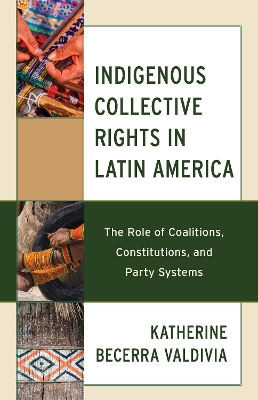Latin America is a region with high levels of recognition for indigenous collective rights. Still, legal protections differ considerably among the countries. Why do some countries in Latin America have a strong recognition of collective rights for indigenous people while others do not? What are the factors that help enhance the presence of collective rights? The author argues that while indigenous social movements are crucial to the protection of indigenous rights, they are not enough. The recognition of these rights is influenced by organizational factors (such as coalitions between indigenous peoples and non-indigenous allies) as well as institutional conditions (including constitutional replacement and party systems). By employing qualitative comparative analysis (QCA) and case studies from Bolivia, Chile, Colombia, Ecuador, Guatemala, Mexico, and Peru, this book explores the ways various elements combine to create conditions for a variety of collective rights.
- ISBN10 1666909106
- ISBN13 9781666909104
- Publish Date 15 October 2022
- Publish Status Forthcoming
- Publish Country US
- Publisher Rowman & Littlefield
- Imprint Lexington Books/Fortress Academic
- Format Hardcover
- Language English
